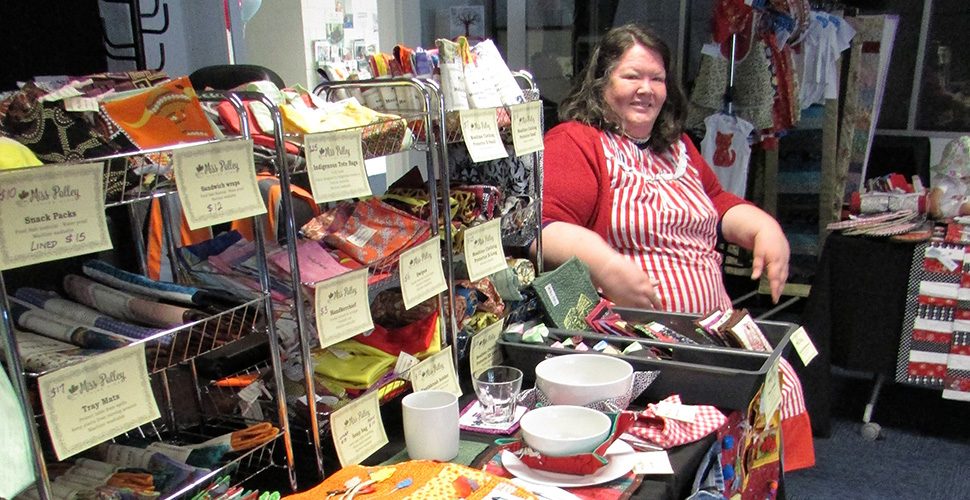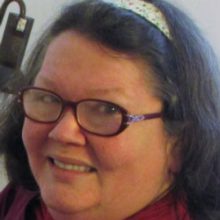Hope for the future

As medicine grew in its understanding, I found out I have Joint Hyper Mobility Syndrome (daughter has Ehlers Danlos Syndrome) and Lipoedema. One of these ensures that any sort of exercise was a painful experience, and dangerous one because things just didn’t stay together. The other converted perfectly normal cells to permanent fat cells that not only don’t respond to weight loss efforts, they lay themselves down in greater numbers in response to a perceived famine.
I graduated as a Home Economics teacher, but had to stop being in the classroom with the effects of Chronic Fatigue Syndrome. I retrained in my 40s with a degree in Public Relations, but found that I couldn’t work full time without getting sick far too often. The final straw was permanent Atrial Fibrillation. But I kept working with less and less hours a week until 2014 when I went on a Disability Pension in order to “give my body a chance to recover”. Ha – my poor, tortured and over-pushed body took advantage of the hiatus, and collapsed all together. I finally accepted that I was to wear the label ‘disabled’, and asked for some help, particularly after 3-4 months of not being able to shower myself or wash my hair (yes I did try to keep clean the best I could). I received assistance for one hour a week to shower, and one hour a fortnight to do basic household maintenance. When my husband, who struggles with mental health issues, reached a crisis, I was able to get a few more hours a week assistance to give him a couple of week’s respite.
The NDIS
In the meantime, Canberra was trial site for NDIS, but my age (late 50s) meant that my rollout wasn’t available till the end of 2015. But I could see that there was a real possibility that I should be able to get more help than what was doled out through HACS. I took time to read up all about NDIS, and found an article on ‘Person Centred Approach’ to care – and it all made sense.
I read more, and started writing down the answers to the questions:
- What do I do now?
- What would I like to do?
- What stops me doing it?
- What help can NDIS give to help me reach my aspirations?
I started to dream again.
A number of years ago, I ran a dressmaking business which I loved, and had also dabbled in making products and selling at markets. I stopped doing this because it was impacting on my health, and I could no longer carry things or stand for a time and other things where my body was letting me down. I realised that – if I got some help with the things I could no longer do – maybe I could do this again. This was a turning point for me in coming out of the sense of uselessness and the end of my contribution to society and I realised that I would not necessarily be a burden for the rest of my life, relying on others just to do simple things in life.
I kept reading about what NDIS could offer me, and started to write some goals, and what I needed to achieve them. I received some help from an NDIS officer with the NGO that was providing me with some limited support. Finally my turn came around for an appointment with a planning officer. The NDIS support worker came with me to the planning meeting, but I took in several pages describing exactly what I could do, and what I wanted to do.
I struck a really lovely planner, who started going through her run sheet – explaining exactly what NDIS could do for me, and started working through the process of identifying the goals. It became obvious after a while that I had written most what she needed to know down.
In the end my goals were:
- With help, live an independent life in self-care and managing a household.
- To have suitable equipment and aids to live safely and as independently as possible.
- To undertake activities and therapy that will assist in improving my physical capacity or at a minimum help prevent their progression to a more limiting stage.
- To have support to access the community and increase my social participation.
- Develop a small business in creative pursuits that will provide a supplemental income.
It was the fifth goal that excited me the most – the other goals were all means to being able to do this. I had already begun the process of product testing, and writing a business plan. It was as though all of my experiences in life had worked toward providing me with the contacts, skills and passion to achieve this. Miss Polley Living Aids was born to provide environmentally friendly products that will improve the quality of life of People with Disability and the elderly.
Transforming lives
The NDIS has provided me with the tools and support I needed to establish this business. No longer was every ounce of energy I had funnelled into trying to do the basics for survival – getting dressed, cleaned and fed, and not falling over the increasing mess around the house because I couldn’t tidy up and clean.
My relationship with my husband improved as he was no longer confined to making sure I was safe and being my full time carer. I began to regain some self-esteem, and confidence, and even began to look forward to a brighter future.
In many ways, now I am functioning in the area of self-actualisation, and enjoying problem solving, being creative, and helping meet the needs of others.
The NDIS provides me with daily support workers to help me get dressed, eat and care for myself, and have a safe environment. It has provided some equipment to regain independence – and I am looking forward to when I can actually get my powered wheelchair, as I am still losing mobility. I also have been able to access some mentoring and support in establishing my business Miss Polley Living Aids, which has reactivated skills and abilities in me that I was beginning to forget I had.
Like most participants, I found frustration at the change over time in July 2016, but things are finally coming together again, and I am thrilled to at last gain some choice and control over my life, and enable me to feel I am still a fully functioning and contributing member of society again – not a burden and drain on society’s resources.


Join the conversation